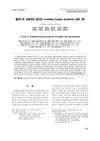 September 2018 in “International Journal of Dermatology”
September 2018 in “International Journal of Dermatology” People with alopecia areata often have lower levels of zinc and vitamin D.

Antimalarial agents are effective for LPP, and intralesional steroids are effective for FFA.

Ajwain seed extract improved skin healing and hair growth in a mouse skin irritation model.
January 2018 in “Journal of Food Biosciences and Technology” Garlic and fenugreek may help treat hair loss.
January 2018 in “Iranian Journal of Pharmaceutical Sciences” Urea, eucalyptus oil, and menthol improve minoxidil skin absorption.
 October 2017 in “Iranian Journal of Dermatology”
October 2017 in “Iranian Journal of Dermatology” Clinical exams are good for diagnosing some women's hair loss, but lab tests aren't always needed.
Levetiracetam and valproate sodium both reduce seizures when added to lamotrigine, but levetiracetam has fewer side effects.
November 2010 in “Deleted Journal” The herbal shampoo with lavender oil was effective and well-liked by users.
November 2006 in “Yafteh”  May 2021 in “medical journal of mashhad university of medical sciences”
May 2021 in “medical journal of mashhad university of medical sciences” The mix of 2% flutamide and 5% minoxidil improves hair thickness more than just 5% minoxidil alone in treating hair loss.
 May 2021 in “Journal of Dermatology and Cosmetic”
May 2021 in “Journal of Dermatology and Cosmetic” Low-power lasers can prevent hair death and increase hair growth in wounds caused by freezing in rats.
December 2020 in “Galen Medical Journal” Alopecia patients have more mast cells in their scalps, especially in severe cases and older age, with alopecia areata showing the highest increase.
October 2020 in “Medical journal of Tabriz University of Medical Sciences and Health Services” PRP injections significantly increased hair growth in patients with androgenic alopecia.
December 2019 in “Arak Medical University Journal” Adding 7% chamomile extract to minoxidil reduces skin side effects in treating male hair loss.
Both treatments improved hair loss, but 15% Minoxidil caused more side effects than Low Level Laser Therapy.
January 2019 in “International Journal of Dermatology” Androgenetic alopecia is linked to a higher risk of metabolic syndrome.
 July 2014 in “Journal of Dermatology and Cosmetic”
July 2014 in “Journal of Dermatology and Cosmetic” Niosomal minoxidil was found to be more effective in increasing hair count and patient satisfaction than conventional minoxidil in treating hair loss.
The product made from plant extracts was tested for treating hair loss caused by genetics.
 40 citations,
January 2017 in “Intestinal Research”
40 citations,
January 2017 in “Intestinal Research” Genotyping for NUDT15 p.Arg139Cys can help predict thiopurine side effects in Japanese IBD patients.
 3 citations,
January 2011 in “Intestinal Research”
3 citations,
January 2011 in “Intestinal Research” Cronkhite-Canada syndrome can cause multiple gastrointestinal polyps and various physical symptoms.
2 citations,
January 2004 in “Korean Journal of Andrology”  August 2013 in “Fertility and Sterility”
August 2013 in “Fertility and Sterility” High levels of fatty acids are linked to increased androgen production and inflammation in women with PCOS, which may affect IVF outcomes.
 August 2013 in “Fertility and Sterility”
August 2013 in “Fertility and Sterility” Hair loss is common in women with PCOS and is linked to symptoms like acne and excess hair but not to worse metabolic health.
 August 2013 in “Fertility and Sterility”
August 2013 in “Fertility and Sterility” PCOS may be influenced by factors in the blood, not just the ovaries.
November 2014 in “PharmaTutor” Finasteride may help postmenopausal women with hair loss but is not effective for all and should be used cautiously in premenopausal women.
 September 2008 in “Fertility and Sterility”
September 2008 in “Fertility and Sterility” Exposure to fatty acids significantly increased androgen levels in female dogs, suggesting a link to conditions like insulin resistance and PCOS.
 June 2007 in “Journal of Investigative Dermatology”
June 2007 in “Journal of Investigative Dermatology” Title change to "Central Centrifugal Cicatricial Alopecia (CCCA)"; common in African American women; hair-grooming methods may contribute; no effective therapy found; trials needed.
 135 citations,
March 1984 in “Fertility and sterility”
135 citations,
March 1984 in “Fertility and sterility” Higher levels of unbound testosterone are linked to increased insulin resistance, especially in women with polycystic ovary syndrome.
 50 citations,
October 2009 in “Clinical Endocrinology”
50 citations,
October 2009 in “Clinical Endocrinology” Hair loss in young men linked to higher risk of insulin resistance and metabolic issues.
















